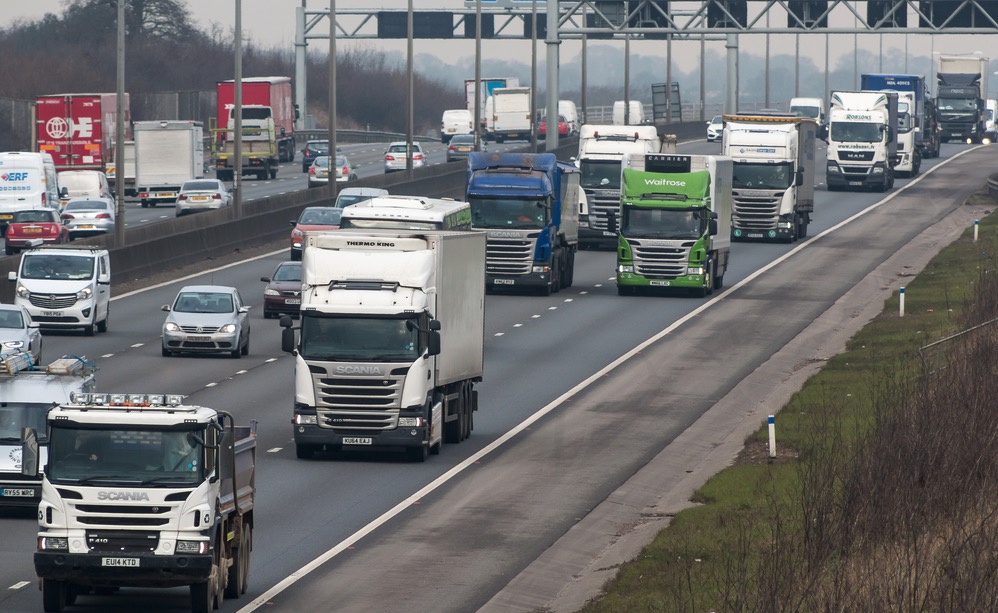Sector - Transport & Infrastructure
Logistics industry expects successful year

The Freight Transport Association (FTA) has released its 2018 Logistics Report, polling the opinions of some 500 freight and logistics businesses, both in the UK and internationally.
Following a resilient year in 2017, the industry is expecting a successful 2018, despite continued uncertainties around Brexit and prolonged economic worries.
The FTA Logistics Report 2018, released in association with Santander, shows a confident sector following consistent performances across all transport modes. Overall market activity and investment intentions are up across the board, Elizabeth de Jong, FTA’s Director of UK Policy, explains:
“Respondents to this year’s FTA Logistics Report were generally positive about their 2017 trading performance, and the prospects for their respective sectors. With positive growth in domestic and international road freight, as well as the majority of air freight import/export business, sea freight movements and a rebound in rail intermodal services, there is much for the logistics industry to be encouraged by.
“However, with inflationary pressures at home and abroad and the uncertainty of trading relationships post-Brexit, it is clear that many operators are far from confident about their future business prospects. And with logistics underpinning the British economy at all levels, both domestically and overseas, it is crucial that the sector is boosted by concrete plans for the UK’s future relationship with Europe, which will keep Britain trading effectively as the country moves towards the challenges of Brexit.”
However, there was also caution behind the optimism with respondents warning that the current positivity surrounding logistics could be lost, with Brexit being the main driver. Plans for the UK’s trading relationship with Europe need to be firmed up soon to keep industry in growth.
Continued inflationary pressure could also have a significant effect on investment, with 14% already curtailing investment decisions since the vote to leave the EU. While concerns over access to EU workers is also putting pressure on the industry.
John Simkins, Head of Transport and Logistics, Santander Corporate and Commercial Banking, commented: “The survey shows that overall fleet investment intentions remained positive and road freight market activity such as HGV, van and trailer fleets saw investment increase. The industry is constantly transforming and the ever-evolving environmental concerns and frequent changes to legislation have forced many companies to regularly review their fleet operations.”
The report has led the FTA to call for a positive agenda from government, focusing on making the most of global opportunities while optimising the opportunities which Brexit brings for business both at home and overseas. Retaining maximum access to EU markets, in as frictionless a state as possible, is also high on the agenda of “asks” to ensure trade can continue to flow freely to and from the UK:
“It is clear that logistics is a resilient sector, filled with operators determined to get the job done whatever the economic challenges,” continues Ms de Jong, “and the overall picture for 2017 has been encouraging. The mood for 2018 in the freight industry is one of cautious optimism but trading conditions can change on a knife edge, and it is vital that the businesses which support the nation’s economy are given as much opportunity as possible to maintain and build on their trading relationships. Without logistics, British business simply will not keep moving in line with the rest of the world.”
If you would like to read more articles like this then please click here.
Related Articles
More Transport & Infrastructure News
- How technology can improve supply chain resilience in infrastructure project delivery
5 Apr 24
Major infrastructure projects rely on supply chains being resilient in the face of unexpected challenges.
- Lincolnshire gateway approved
2 Apr 24
Plans to transform part of the East Lincolnshire coast have taken an important step forward
- Lord Banner KC to lead review on national infrastructure
25 Mar 24
Top planning barrister, (Lord) Charles Banner KC, will lead an independent review to look into






